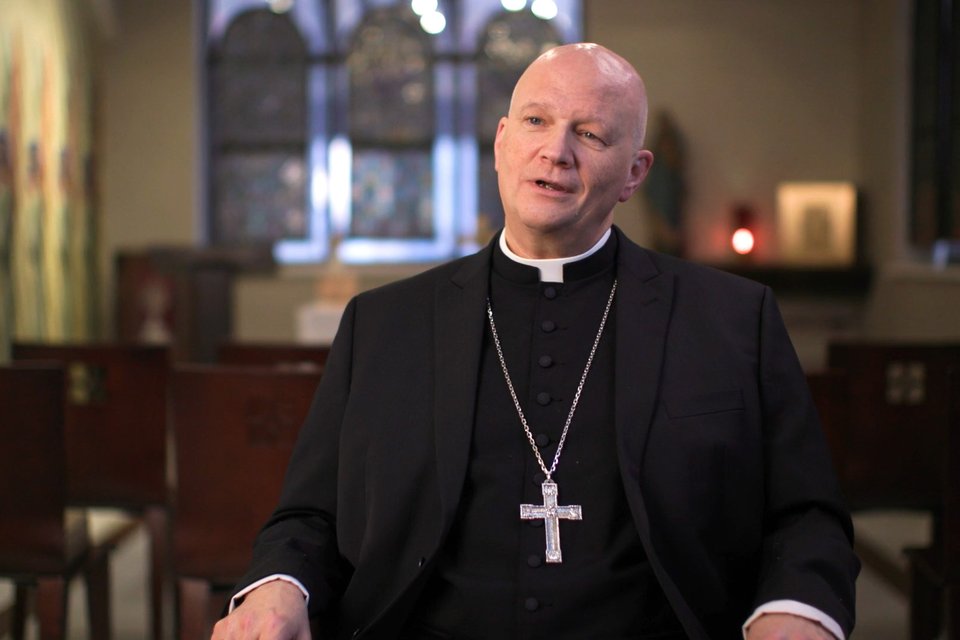VATICAN CITY (CNS) – The Catholic Church is not selective: each one of its members is a sinner and part of the holy, faithful people of God, Pope Francis said in an interview marking his 10 years as pope.
Vatican News on March 10 published excerpts of the interview with RSI, a Swiss radio-television broadcasting in Italian. The full interview was to be aired and available online March 12.
Responding to why some people feel excluded from the church, the pope said, "Sin is always there. There are men of the church, women of the church who create this distance."
"There is a bit of the vanity of the world, feeling more righteous than others, but it is not right," he said. "We are all sinners. At the hour of truth put your truth on the table and you will see that you are a sinner."
When Jesus asks that everyone be brought to his table, "it means that no one is excluded," the pope said.
"When the guests did not come to the feast, he said go into the main roads and invite to the banquet whomever you find: the sick, the good and the bad, the small and the great, the rich and the poor, everyone," he said.
"We must not forget this: the church is not a home for some, it is not selective," the pope said. "The holy, faithful people of God are this: everyone."
When asked how much he has changed since his election March 13, 2013, he responded, "I am old. I have less physical endurance, the knee injury was a physical humiliation, although it is healing well now." He said he felt "a bit ashamed" having to use a wheelchair.
The thing he misses most from the time before he was elected pope is "walking, going down the street. I used to walk a lot. I used to catch the underground, the bus, always with people."
When asked what a pope "from the ends of the earth" brings to the papacy, he pointed to the late Argentine philosopher, Amelia Podetti, who said that "reality is better seen from the extremes than from the center. One understands universality from a distance."
Speaking about the problem of war and conflict in the world, he said a third world war is underway. "It started in bits and pieces and now no one can say it is not worldwide. The great powers are all caught up in it. The battlefield is Ukraine. Everyone is fighting there."
Asked what he would say if he were able to meet with Russian President Vladimir Putin, he said, "I would speak to him as clearly as I speak in public. He is an educated man."
The pope explained how the day after Russia launched its full-scale invasion of Ukraine, "I went to the Russian embassy to the Holy See to say that I was willing to go to Moscow if Putin would give me a window to negotiate." Sergey Lavrov, Russia's foreign minister, "wrote to me saying thank you but now is not the time."
"Putin knows I am available. But there are imperial interests there, not only of the Russian empire, but of empires elsewhere," he said. "It is typical of the empire to put nations in second place."
The conflicts in Yemen and Syria and what is happening to "the poor Rohingyas in Myanmar" are also close to the pope's heart. "Why this suffering? Wars hurt. There is no spirit of God. I don't believe in holy wars."
Pope Francis praised his predecessor, Pope Benedict XVI, who died Dec. 31, 2022, and spoke about how good it was to have him nearby.
"I would ask for his opinion. He would tell me what he thought; he was always balanced, positive, a wise man," he said.
He said the liturgists in charge of papal ceremonies faced a real challenge in organizing "the funeral of a non-reigning pope. It was difficult" to find ways in the Mass to honor the retired pope while making clear he was no longer in office.
"I have now told them to study the ceremony for the funerals of future popes, of all popes. They are studying and also simplifying things a little, removing the things that liturgically are not correct," Pope Francis said.
The pope has repeatedly said he does not plan on resigning any time soon, but when asked what would lead him to step down, he responded that it would be the kind of fatigue that "does not make you see things clearly. A lack of clarity, of knowing how to evaluate situations. A physical problem, too, perhaps."
He said he always asks people who know him well and "even some intelligent cardinals" for their advice about "How are things going? Do you think I should. … And they tell me the truth: 'Carry on, it is fine.' But please: give me a shout in time."
When asked why he always asks people to pray for him, he said he believes everyone prays, but if they are not religious and don't pray then he asks they "send me good vibes."
This idea of sending "good vibes," he said, "it is a pagan way of praying, but it is a loving way. And to love someone is a prayer."









